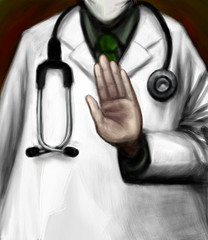Fear is a very powerful emotion. In fact, some say fear is the primary motivator in many people’s lives. Because of the prevalence of this common state it is important to be aware of its potential effects.Two of the most dangerous characteristics born out of anxiety of any kind are self-centeredness and arrogance.
The Power Of Fixation
When a person allows his angst to consume his life, he traps himself into the position of thinking about and talking about what he is afraid of as often as possible. The people around him are held hostage by these constant conversations. He may become so consumed by his phobias that he builds protective walls around himself .These barriers usually consist of self-righteous opinions and assertions that confuse those around him.
Whether a person becomes self-centered or arrogant as a result of his fears, the end result is the same: he will have a complete lack of intimacy in his life.
Learn To Respond
When you go in for a routine physical, a common experience is the reflex test. The doctor takes the rubber mallet and gently raps the knee. The leg instinctively kicks out as a reaction to this strike. If the doctor is standing in front he may take a direct kick as a result of this reaction.The result is similar when you react to fear. There is an innate expectation for something to go dreadfully wrong and as a result, you may lash out at the people around you. The most common reaction to fear is anger. When you react out of anger, you generally say or do something you later regret. Some attitudes have developed after years of repeated actions. After much repetition these reactions become ingrained. People in your life are subject to emotional backlash.
Live In The Solution
Becoming aware of patterns of negative compensation for emotional instability is half the battle. The priority then becomes developing a plan of action to change. When you are able to act in a more positive manner you have the power to let go of any emotion. Seek the help and guidance of someone who can provide you with simple solutions. As you change what you do your emotions will follow suit. With consistency and practice you will gain confidence and see change in your relationships and other areas of your life.
